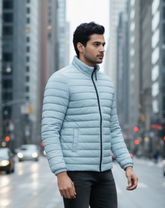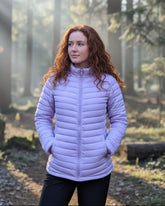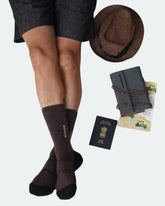Exploring the East coast of Australia by road with Nidhi Mohan Kamal
Until the lockdown in March 2020, we did not need a reason to travel. Cooped up in our homes for over 6 months, I have been dreaming of walking through the woods, climbing a mountain, putting my head up to the warm sun in the midst of snow. I have been dreaming of getting back on the road again, with no inhibitions or fear, with no protective gear.
My dreams make me wonder about the future of travel. I spoke to Nidhi Mohan Kamal, ace Fitness and Nutrition coach on what inspires her to travel the world and how will travel change post the COVID-19 pandemic.
Nidhi Mohan Kamal studied to be a food scientist and her passion for fitness led her into becoming a nutritionist, strength and ashtanga vinyasa trainer. She has been training herself for the last 18 years and has been a trainer for more than a decade. Besides workout, she enjoys travelling, reading, meeting new people and exploring new places which inspires her and keeps her going.
Nidhi leads by example, she not only teaches people to get on the path of wellness, she also practices it in herself. She quit a corporate career to pursue her dream and establish a lifestyle that gave her the ability to explore different parts of the world slowly. Nidhi works for 9 months and spends 3 months on herself. She shares her experience of going on a solo unplanned road trip to the East coast of Australia for over 4 weeks.
When was the last time you went on a road trip in an unknown country with no guides and absolutely no planning? Are you one of those people who hates planned trips because it leaves no space for surprise elements and adventure? Well then, read on about Nidhi’s trip where she booked a one way ticket to Australia!
What does travel mean to you?
Our cities have become over populated. If we are staying outside India or in the Himalayas, there is still an option of going to a national park, nature is close by; but in Indian metros, urbanisation has reached an unsustainable level. In a city like Delhi, if I had to head outdoors, I have to spend at least 4-5 hours to reach a place where I feel that I am in nature. This is not healthy. It is important to reconnect with nature.
For me, travel gives me that breather. Unlike urban lifestyles, where we would spend time in a mall, these are artificial atmospheres. In order for a normal human being to survive, going back to greens is essential.
Travel has been an important part of my life, to get a break, to have a change in perspective. Therefore in 2018 and 2019, I have worked for 9 months and travelled for 3 months.
What pushed you to take this decision of travelling for 3 months, considering it is not easy to get such an extended leave for a working professional in India?
If you had asked me this question a few years ago, I would have said it is not possible. I am a business owner and when no one else is accountable, you are accountable. For everything, from the smallest thing going wrong in your company to the biggest issues. But gradually, because I was going out on my Yoga training, I trained people under me to take on responsibilities on my behalf. It was not easy, but it was establishing a system over years, where am not always available. I have empowered my team to make decisions.
In corporate careers, overworking is always glamorized. Taking time off is not prioritised in India. I feel that COVID-19 is a blessing in disguise, that has made us realise that many jobs don’t need to be done from a specific workspace. You can work from anywhere. That has been my way of work as well, since I started my online clinic 2 years ago.
I believe that in the upcoming years, we will see a revolution in the way we travel. People would look at long term travel more seriously.
The first time Nidhi went on a long break was to be away from the urban lifestyle and go deeper in her Yoga practice. She used to start her days early, practice Yoga for 6 to 7 hours and work during the night. She enjoyed the experience and realized she could do it more often, possibly every 3-4 months. That is how long term travel started.
Tell us about one of your trips to get close to nature
I got a one way ticket to Australia, with a one year visa in October 2019. There was no definite plan when I landed, except that I wanted to drive along the East Coast of Australia.
My idea was to start from Cairns, I rented a car, kept interacting with backpackers along the way. The travel planning started once I was there. I wanted this to be a long, sustainable travel experience. I made and changed plans on the way, booking Airbnbs just a day before going to a place. This was very experimental, a balance between a backpacking and luxury trip.
I would just go for a National park, enjoy the day there and take shelter in the nearest city for the night with no concrete plans about the next day!
What were your most memorable moments of your trip or was there any moment that made you feel like you were blessed to be experiencing it?
I had innumerable such moments on my trips and I always write down my exact feelings in my journal with the date and time. I like to go back to my journals and revisit these experiences. At the start of the lockdown, I felt very grateful that I could do things when I wanted to. I have a long list, some of these memories are a mesmerizing sunset in Venice, peak of winters in Dolomite Mountains.
Can you describe the winter in the Dolomite Mountains?
I visited this place back in December 2018, on a road trip from Austria to Italy, and my only plan was to take it one day at a time, reach the top and maybe have a cup of coffee there. Chasing sunrises was the goal. I saw some of the most beautiful colours in the sky during this trip and I believe that people should visit this place once in a lifetime, both in summer and in winter months.
Was there any challenges in finding food, as you follow a vegan diet?
No, there wasn't any real challenge getting vegan food on my trip. Australia and Germany are 2 countries which are Vegan friendly. Even in the smaller towns, outside bigger cities of Australia, if I wanted tea without milk at a lone petrol pump of a remote village, they would have had all the options available mostly. Additionally, I mostly cook my own food when going on these trips with my friends so food is never really a major issue anywhere.
I remember a major challenge I faced when travelling to Kyrgyzstan where the supermarkets had only meat and not even have fruits or yoghurts to sell. It is nice that Australia is not only vegetarian friendly, but also a haven for vegan travellers. What are your thoughts about the Australian people?
I feel that Australian people are very friendly. They usually get a lot of Indian tourists and are always kind, athletic and helpful. I have been to Australia twice on road trips and plan to be there again sometime in the future because the culture, nature of people, driving, food and even language barrier is not much of an issue here unlike countries like Spain, where you need to know local language to be able to communicate.
Tell us how you went about your road trip to Australia
Although there are a large number of places I drove to, I vividly remember visiting the Great Barrier Reef.The weather there is pretty hot and humid in the summer months but relatively pleasant ( in October) when I went there with my friends.
I started from the northern part and visited the Daintree rainforest, the oldest rainforest in the Earth, in the process. The best part about this place is that you can see some plant species which haven't evolved for millions of years and this is probably one of the best places for a day trip.
I do not recommend going to the ocean because of the Starfish. I remember diving in the Great Barrier Reef and there were some really famous islands I visited, especially the magnetic island where, legend says, 2 cannons disappeared in one night!
I also visited the beautiful Fitzroy island, the Rottnest island and the exquisite 7km long Whitehaven beach of Whitsunday island, where the sand is completely white and the colour of the water is pure blue. However, do not take a dip in the water because of the starfish issue.
Another place along the east coast that I would recommend everyone to visit is the Frazer island stretching over 120km. It's a sand island with a lot of fresh water lakes. The island also has rainforests, eucalyptus woodland, mangrove forests, wallum and peat swamps, sand dunes and coastal heaths, making it any biologist's dream destination. The salt water is not accessible due to the presence of sharks.
Finally, there are a lot of lighthouses which you can visit and spot whales during sunrise and also the many cities like Sydney, Melbourne which have their own tourist attractions.
Was there any major life lesson you want to share from your trip to Australia?
The biggest life lesson from this trip was to overcome my fears and live life by the day. I have never been a confident swimmer and scuba diving in the ocean with nothing on both sides forced me to get over my fear. I also believe that on unplanned trips like these, it's important to let go and let life take its own course.
According to Nidhi, instead of thinking of what can go wrong at every stage of the drive, it's important to take 1 day at a time and always look ahead.
What are the 3 things that travellers like you should keep in mind while planning a road trip to Australia?
Firstly, I believe people need to be very careful about the local routes and traffic rules of Australia.
Secondly, Australia is known for its wildlife and wildlife conservation initiatives, so it is really important that tourists like us respect them as well
Lastly, it's absolutely not advisable to take a dip in the ocean unless you are very sure because of the starfish issue, so it's important that you respect nature while enjoying it's marvelous creations.
What are your travel essentials for road trips like these?
I mostly focus on carrying my camera, drone and mobile to capture the beautiful moments rather than the usual travel essentials. Among the usuals, I carry my swimming gear , sunscreen that’s reef safe and quick drying clothes to be able to experience all kinds of climatic conditions. I also have a habit of carrying at least one saree with me on any international trip I go to.
What is, in your opinion, the future of travel in the post Covid-19 world?
I believe that it's important to rethink the way we travel. The best way to travel responsibly is to take all necessary precautions, avoid contact with people and stay longer in a place, so that you can self quarantine yourself and avoid becoming a carrier.
Also as most people now are working remotely, it makes sense to isolate ourselves, ensure we are safe and then enjoy the beauty of our travel destination.
Also I don't think it's a feasible option to stop travel completely as the livelihood of most people in the mountains depends on tourism in India. My biggest lesson from this pandemic is that life never goes as planned!
With this paradigm shift worldwide due to the pandemic, what are the tips that you would give to the readers in order to maintain an eco friendly and sustainable lifestyle when things get back to normal?
I strongly believe that the Earth is very sensitive and that every species in this planet has its own utility. So we must take conservation of nature along with it's flora and fauna very seriously. I believe that the first step towards protecting nature is by giving up meat and taking care of all domestic animals we see in our everyday life.
The other key factor,in my opinion, is optimization. In today's world, a lot of people buy loads of unnecessary things which leads to wastage and environmental degradation. I personally bought only 2 plastic bottles on my Australia trip and used to refill and reuse these bottles as much as possible.
The need of the hour is regenerative travel, going beyond sustainable travel which means leaving the place we visit in a better condition than it was before. While we are striving for growth and expansion in every quarter, we must not forget to include nature as one of the major stakeholders in the entire process.
The Boat Pose or Navasana in Yoga is one of the best exercises for our core. If done correctly, it builds the smaller muscles unlike machines in the gym, which work on the bigger muscle groups only. Thus it makes you strong from within. This pose is not easy. If there is one person who can make you this tough pose, not huffing and puffing, but smiling all the way, it is Nidhi. To see how, you can follow Nidhi on Instagram @nidhimohankamal.
Hope you enjoyed reading Nidhi’s travel philosophy. As I waited for the right time to step outdoors, I spoke to Amrita Diwanji, about her travels in Alaska. Read about it here.
Interviewed by Kosha Founder, Yuktie Jhangiani Verma and transcribed by Kosha Team Member Aditya Das.
If you have any stories or queries for us, then shoot us a mail at konnect@kosha.co Also, say hello to us on Facebook, Instagram & Twitter and keep the travel bug going.
Till next time!
Editor’s Picks
Packable Puffer Jacket For Men
- From ₹3,900.00
₹8,400.00- From ₹3,900.00
- Unit price
- / per
Men's Full Sleeves Thermal | Merino Wool + Bamboo
- ₹4,940.00
₹7,600.00- ₹4,940.00
- Unit price
- / per
Alaskan Parka Jacket For Women - Slim Fit
- ₹8,925.00
₹11,900.00- ₹8,925.00
- Unit price
- / per
Lightweight Packable Puffer Jacket For Women
- ₹5,040.00
₹8,400.00- ₹5,040.00
- Unit price
- / per
Men's Merino Wool Cushioned Technical Socks
- ₹1,074.00
₹1,790.00- ₹1,074.00
- Unit price
- / per













